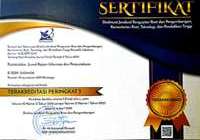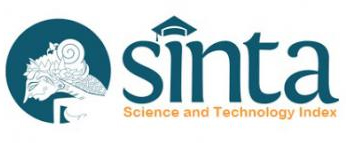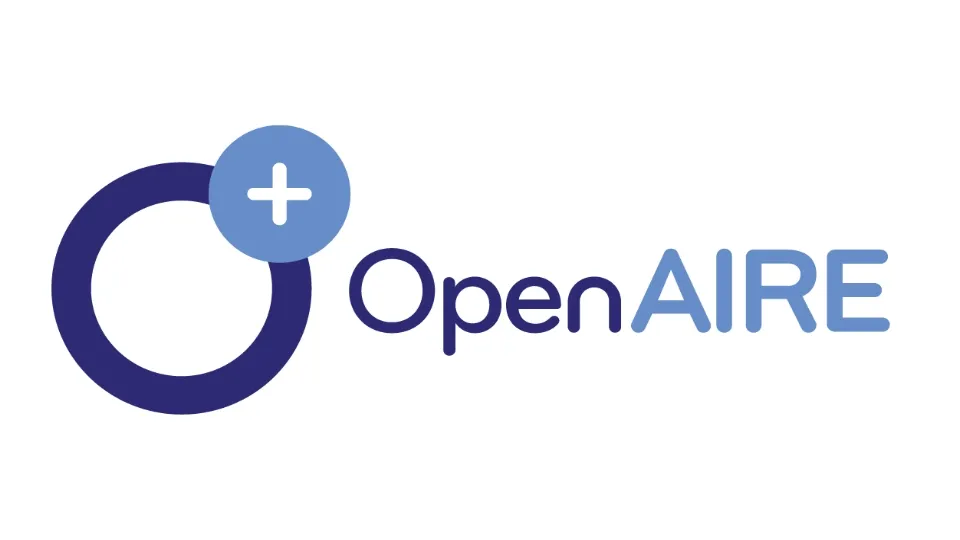Personal Knowledge Management (PKM) pada Pengikut Akun Autobase @collegemenfess
DOI:
https://doi.org/10.21154/pustakaloka.v14i1.3433Keywords:
information exchange, Personal Knowledge Management, Autobase TwitterAbstract
Information search activities are things that are usually done by students in meeting information needs. Twitter is one of the social media that can be used as an information search engine. In Indonesia, there has been a phenomenon of using automatic fanbase (autobase) twitter which is used as one of the information search media by students, namely autobase twitter @collegemenfess. Through the @collegemenfess autobase media network, there can be an exchange of information and knowledge that can support Personal Knowledge Management. The purpose of this study is to examine how personal knowledge management is on followers of the @collegemenfess autobase account. The research method used is descriptive with a quantitative approach to 100 respondents who are followers and users of the @collegemenfess autobase account. The results of this study are that there is a very good category of assessment in the aspect of Personal Knowledge Management ability which includes the ability to retrieve information and analyze information and in a good category in the aspect of the ability to evaluate or assess information and organize information. Meanwhile, in presenting information, respondents tend to be more adept at presenting information in written than verbal.
References
Adetunji, Christopher, and Leslie Carr. 2017. “EMSoD ”” A Conceptual Social Framework That Delivers KM Values to Corporate Organizations.” International Journal on Advances in Software 9 (3&4): 303”“21. http://eprints.soton.ac.uk/id/eprint/404219%5Cnhttp://www.iariajournals.org/software/.
Agnihotri, Raj, and Marvin D. Troutt. 2009. “The Effective Use of Technology in Personal Knowledge Management: A Framework of Skills, Tools and User Context.” Online Information Review 33 (2): 329”“42. https://doi.org/10.1108/14684520910951249.
Ajjronisa, Sudia. 2016. “Sistem Temu Balik Informasi Menggunakan Google Scholar.”
Ammalliyah, D. 2017. “Perilaku Pencarian Informasi Digital Natives (Studi Kasus Siswa SMA Negeri 13 Medan).” Universitas Sumatera Utara.
Anggreini, Nike Meilinda, Badruddin M.Si Nasir, and Ifan Luthfian S.Sos.Msi Noor. 2016. “Pemanfaatan Media Sosial Twitter Di Kalangan Pelajar SMK Negeri 5 Samarinda.” EJournal Sosiatri-Sosiologi 4 (2): 239”“51.
Chaudhry, Abdus Sattar. 2013. Use of Social Media and Networks to Support Personal Knowledge Management: A Study of PKM Practices of Government Officers in Kuwait. Canada: IEEE.
Damayanti, Tyas Eka. 2014. “Pemanfaatan Twitter Sebagai Media Information Sharing Di Perpustakaan (Studi Kasus Tentang Pemanfaatan Media Sosial Twitter Sebagai Media Information Sharing Di Perpustakaan Wilayah Kota Surabaya).” Journal of Airlangga University 3 (2).
Fatmawati, Sarah ;, and Dini Salmiyah. 2017. “Motif Interaksi Sosial Role-Player Pada Mahasiswa Universitas Telkom Di Social Networking Twitter.” E-Proceeding of Management 4 (3): 3345”“52.
Hasugian, Jonner. 2006. “Penelusuran Informasi Ilmiah Secara Online: Perlakuan Terhadap Seorang Pencari Informasi Sebagai Real User.” Pustaha : Jurnal Studi Perpustakaan Dan Informasi 2 (1): 1”“13.
Jaya, I M L Mertha. 2020. Metode Penelitian Kuantitatif Dan Kualitatif. Yogyakarta: Anak Hebat Indonesia.
Jefferson, Theresa L. 2006. “Taking It Personally: Personal Knowledge Management.” Vine 36 (1): 35”“37. https://doi.org/10.1108/03055720610667345.
Jing, Li, Sun Yahui, Zheng Ning, and Lv Xin. 2012. “The Design Of Students-Oriented Personal Knowledge Management System.” Physics Procedia 24: 2310”“13. https://doi.org/10.1016/j.phpro.2012.02.341.
Kaplan, Andreas M., and Michael Haenlein. 2010. “Users of the World, Unite! The Challenges and Opportunities of Social Media.” Business Horizons 53 (1): 59”“68. https://doi.org/10.1016/j.bushor.2009.09.003.
Kurniasih, Nuning. 2014. “Jenis-Jenis Sistem Temu Kembali Informasi.” Academia Edu. 2014.
Kusumastuti, A., A M. Khoiron, and T A Achmadi. 2020. Metode Penelitian Kuantitatif. Yogyakarta: Deepublish.
Laksmi, Laksmi. 2021. “Personal Knowledge Management of Jabodetabek Urban Community in Indonesia in Facing Digital Era.” Pustabiblia: Journal of Library and Information Science 5 (1): 1”“22. https://doi.org/10.18326/pustabiblia.v5i1.1-22.
Leonardi, Paul M., Marleen Huysman, and Charles Steinfield. 2013. “Enterprise Social Media: Definition, History, and Prospects for the Study of Social Technologies in Organizations.” Journal of Computer-Mediated Communication 19 (1): 1”“19. https://doi.org/10.1111/jcc4.12029.
Lestari, N. P. 2016. “Uji Recall and Precision Sistem Temu Kembali Informasi Opac Perpustakaan Its Surabaya.” Universitas Airlangga.
Li, Lei, and Shuai Zhang. 2010. “The Twitter-Based Research of Personal Knowledge Management.” 2010 3rd International Symposium on Knowledge Acquisition and Modeling, KAM 2010, 5”“7. https://doi.org/10.1109/KAM.2010.5646220.
Li, Weichao, and Yong Liu. 2008. “Personal Knowledge Management in E-Learning Era.” Lecture Notes in Computer Science (Including Subseries Lecture Notes in Artificial Intelligence and Lecture Notes in Bioinformatics) 5093 LNCS: 200”“205. https://doi.org/10.1007/978-3-540-69736-7_22.
Ma, Wei Qi. 2011. “The University Students Personal Knowledge Management Strategy Study.” International Conference on Management and Service Science, MASS 2011, 26”“28. https://doi.org/10.1109/ICMSS.2011.5998906.
Mardiana, L., and A. F. Z. Zi’ni. 2020. “PENGUNGKAPAN DIRI PENGGUNA AKUN AUTOBASE TWITTER@ SUBTANYARL.” Jurnal Audience: Jurnal Ilmu Komunikasi 3 (1): 34”“54.
Nurhadi, Zikri Fachrul. 2017. “Model Komunikasi Sosial Remaja Melalui Media Twitter.” Jurnal ASPIKOM 3 (3): 539. https://doi.org/10.24329/aspikom.v3i3.154.
Papilaya, Jeanete Ophilia, and Neleke Huliselan. 2016. “Identifikasi Gaya Belajar Mahasiswa.” Jurnal Psikologi Undip 15 (1): 56. https://doi.org/10.14710/jpu.15.1.56-63.
Permatasari, Novia, Rihan Yosral, and Cholifa Fitri Annisa. 2021. “Analisis Media Sosial Twitter Tentang Pendidikan Daring Pada Masa Pandemi Covid-19 Di Indonesia.” Seminar Nasional Official Statistics 2020 (1): 359”“69. https://doi.org/10.34123/semnasoffstat.v2020i1.703.
Proboyekti, Umi. 2015. “Pencarian Informasi Dan Navigasi.” Jurnal EKSIS 8 (1): 1”“7.
Purwono. 2008. “Strategi Penelusuran Informasi Melalui Internet. In Seminar Sehari Tentang "Strategi Penelusuran Informasi Di Internetyang Diselenggarakan Oleh Himpunan Mahasiswa Jurusan Ilmu Perpustakaan Fakultas Adab Dan Humaniora Universitas Islam.” Universitas Islam Negeri Syarif Hidayatullah.
Putri, Nuril Kusumawardhani Soeprapto. 2012. “Aplikasi Konsep Personal Knowledge Management (PKM) Dengan Social Web.” ComTech: Computer, Mathematics and Engineering Applications 3 (1): 374. https://doi.org/10.21512/comtech.v3i1.2424.
Riani, Nur. 2017. “Model Perilaku Pencarian Informasi Guna Memenuhi Kebutuhan Informasi (Studi Literatur).” Publication Library and Information Science 1 (2): 14”“20. https://doi.org/10.24269/pls.v1i2.693.
Rohmiyati, Yuli. 2018. “Model Perilaku Pencarian Informasi Generasi Milenial.” Anuva 2 (4): 387. https://doi.org/10.14710/anuva.2.4.387-392.
Sugiyono. 2013. Metode Penelitian Kuantitatif, Kualitatif Dan R&D. Bandung: Alfabeta.
Syafitri, Nanda Khaerunnisa, Gema Rullyana, and Ardiansah Ardiansah. 2020. “Autobase@collegemenfess, A Twitter Account Used as Information Retrieval Tool.” Khizanah Al-Hikmah: Jurnal Ilmu Perpustakaan, Informasi Dan Kearsipan 8 (2): 161”“72. https://doi.org/10.24252/kah.v8i2a6.
Tankovska, H. 2021. “Number of Monthly Active Twitter Users Worldwide from 1st Quarter 2010 to 1st Quarter 2019.” Statista. 2021. https://www.statista.com/statistics/282087/number-of-monthly-active-twitter-users/.
Yasin, K. 2018. “Apa Itu Search Engine & Apa Saja Fungsinya?” Niagahoster. 2018.
Downloads
Published
Issue
Section
License
Requirements to be met by the author as follows:
- Author storing copyright and grant the journal right of first publication manuscripts simultaneously with licensed under the Creative Commons Attribution License that allows others to share the work with a statement of the work's authorship and initial publication in this journal.
Authors can enter into the preparation of additional contractual separately for non-exclusive distribution of a rich version of the journal issue (eg: post it to an institutional repository or publish it in a book), with the recognition of initial publication in this journal.
Authors are allowed and encouraged to post their work online (eg, in institutional repositories or on their website) prior to and during the submission process, because it can lead to productive exchanges, as well as citations earlier and more severe than published works. (see The Effect of Open Access).















